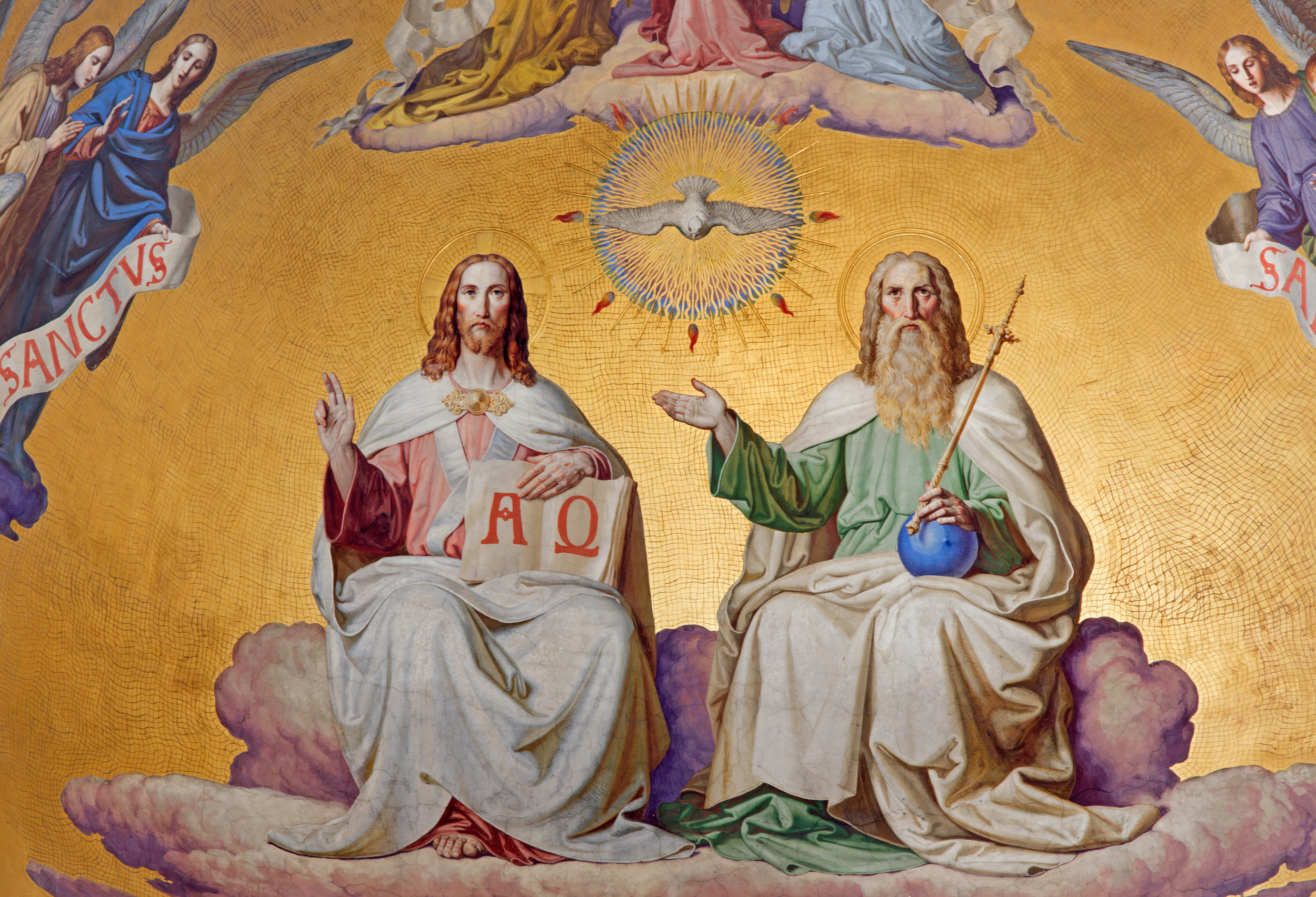The Trinity in Scripture
The word Trinity is not fully explained in the Bible, and Scripture does not clearly spell out the differences between the Father, the Son, and the Holy Spirit. Yet, the idea of God as three-in-one is present throughout.
The Bible always stresses the unity of God. Jesus said the Father and the Son are one (John 10:30; 17:21), and they honor each other (John 17:1). The Father and the Spirit are also one, since the Spirit knows the very thoughts of God (1 Cor. 2:10). The Son and the Spirit are united, because the Spirit is sent in Jesus’ name (John 14:26). In Psalm 33:6, God’s Word and Spirit (“breath”) are described as working together in creation. Paul also identifies the Spirit with the Lord himself (2 Cor. 3:17).
The first Christians held tightly to the Jewish belief in one God, expressed in the Shema: “Hear, O Israel: The LORD our God, the LORD is one” (Deut. 6:4). Some passages in the New Testament show a pattern of three terms—Father, Son, and Spirit—without trying to divide them into separate gods.
The clearest statement of the Trinity in Scripture is in Matthew 28:19, where the risen Jesus told his followers to baptize “in the name of the Father and of the Son and of the Holy Spirit.” The use of “name” in the singular highlights God’s unity. Yet in practice, early Christians often baptized simply “in the name of Jesus” (Acts 2:38; Rom. 6:3).
Paul’s letters also hint at this threefold pattern. In 1 Corinthians 12:4–6, he writes of different gifts but the same Spirit, different kinds of service but the same Lord, and different works but the same God. In Ephesians 4:4–6 he proclaims “one Spirit,” “one Lord,” and “one God and Father of all,” who is over all, through all, and in all. And in 2 Corinthians 13:14, Paul blesses his readers with “the grace of the Lord Jesus Christ, the love of God, and the fellowship of the Holy Spirit.”
The early church was not yet trying to define a formal doctrine of “three persons in one God.” Instead, the writers of the New Testament were describing how God works in the lives of his people. Through the Spirit, he gives life, gifts, and fellowship. Through the Son, he brings faith, obedience, and service. Through the Father, he rules, creates, and shows steadfast love.
In all these ways, God comes near to his people to live among them. And in the end, his purpose is “that God may be all in all” (1 Cor. 15:28).
Study Guide
Main Idea
Although the word “Trinity” is not explicitly in the Bible, the concept of one God in three persons—Father, Son, and Holy Spirit—is woven throughout Scripture. Early Christians understood and described this divine unity and relationship based on biblical evidence.
Key Points to Remember
Unity of God: The Bible emphasizes that the Father, Son, and Holy Spirit are united. Jesus calls the Father and the Son “one,” and the Spirit is described as knowing the thoughts of God and working together in creation (John 10:30; 17:21; 1 Cor. 2:10; Psalm 33:6; 2 Cor. 3:17).
Old Testament Foundations: The Shema (Deuteronomy 6:4) affirms monotheism: “The LORD our God, the LORD is one.” Some passages reflect a pattern involving the three entities—Father, Son, and Spirit—without dividing them into separate gods.
New Testament Revelations: The clearest statement of the Trinity is in Matthew 28:19, where Jesus instructs baptism “in the name of the Father and of the Son and of the Holy Spirit,” emphasizing unity. Early Christians often baptized “in Jesus’ name,” reflecting this belief.
Hints of the Trinity in Paul’s Letters: Paul often mentions the three persons:
1 Corinthians 12:4–6 (different gifts, same Spirit; service, same Lord; works, same God)
Ephesians 4:4–6 (one Spirit, one Lord, one God and Father)
2 Corinthians 13:14 (blessing involving Jesus, God’s love, and Spirit’s fellowship)
Early Christian Understanding: The early church didn’t develop a formal doctrine of “three persons” but described how God is active in believers' lives through the Spirit, Son, and Father—each revealing the divine nature and purposes.
Final Purpose: God's ultimate goal is that “God may be all in all” (1 Corinthians 15:28), showing the divine desire for unity with His creation.
Key Scriptures Referenced
John 10:30; 17:21 – Jesus’ unity with the Father
1 Corinthians 12:4–6, 13:14; Ephesians 4:4–6 – Hints of Trinity in Paul’s writings
Matthew 28:19 – Great Commission and Trinity
Psalm 33:6 – Spirit and Word in creation
2 Corinthians 3:17 – Spirit and the Lord
1 Corinthians 15:28 – God's fullness
Discussion Questions
How does the Bible demonstrate the unity between the Father, Son, and Holy Spirit?
Why is the phrase “in the name of the Father and of the Son and of the Holy Spirit” significant for understanding the Trinity?
How did early Christians understand and describe God's work in their lives through the three persons?
Reflection Activity
Reflect on how the concept of the Trinity influences your understanding of God's nature and your relationship with Him. Write a short paragraph about how knowing God as Father, Son, and Spirit deepens your faith and impacts your daily life.

